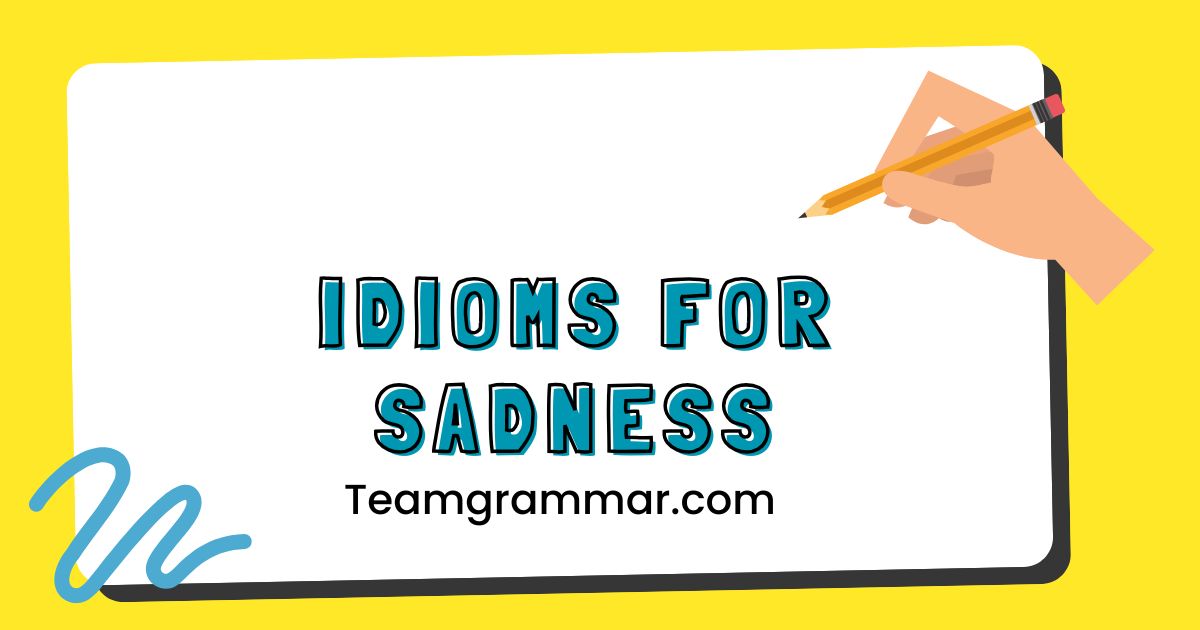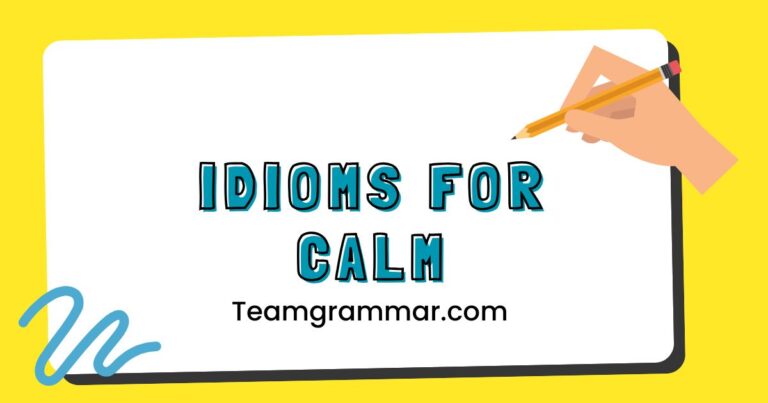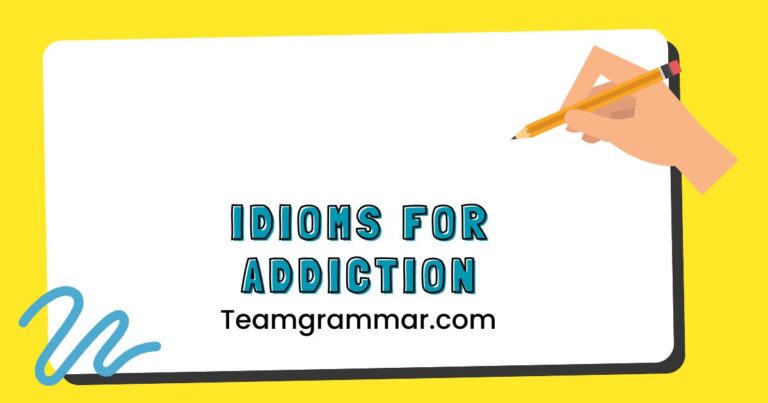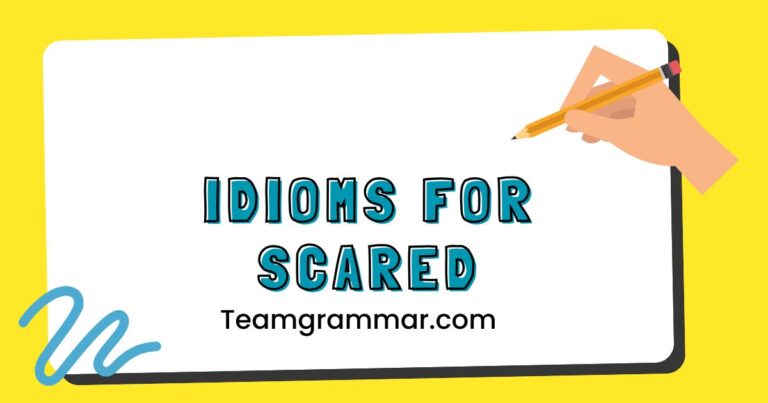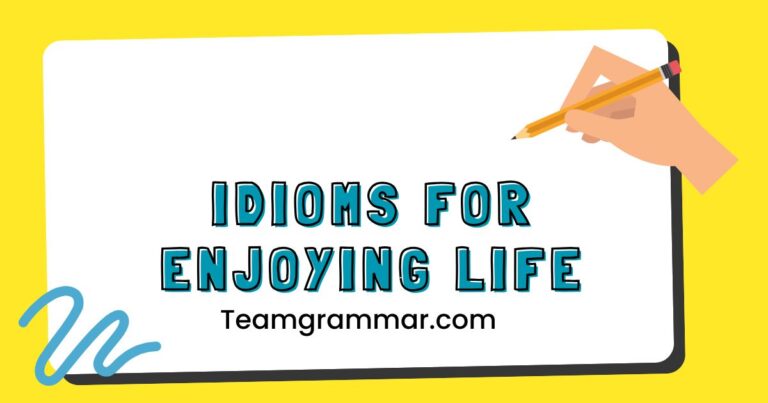35 Idioms for Sadness: Mastering English Expressions of Sorrow
Understanding idioms is crucial for mastering English, as they add color and depth to communication. Idioms related to sadness are particularly important because they allow us to express nuanced emotions in a way that is both evocative and culturally resonant.
This article explores a wide range of idioms used to describe sadness, providing definitions, examples, and practical exercises to help you incorporate them into your vocabulary. Whether you’re an English language learner or a native speaker looking to enrich your expressive abilities, this guide will provide a comprehensive understanding of idioms for sadness.
Table of Contents
- Introduction
- Definition of Idioms for Sadness
- Structural Breakdown of Sadness Idioms
- Types and Categories of Sadness Idioms
- Examples of Idioms for Sadness
- Usage Rules for Idioms of Sadness
- Common Mistakes with Sadness Idioms
- Practice Exercises
- Advanced Topics: The Nuances of Sadness Idioms
- FAQ: Frequently Asked Questions
- Conclusion
Definition of Idioms for Sadness
Idioms for sadnessare expressions that convey feelings of unhappiness, sorrow, or melancholy in a non-literal way. An idiom is a phrase or expression whose meaning cannot be understood from the ordinary meanings of the words it contains.
Instead, the phrase has a figurative meaning that is specific to the language and culture in which it is used. Sadness idioms are used to express a range of emotions, from mild disappointment to profound grief.
These idioms serve several functions. They add emotional depth to communication, allowing speakers and writers to convey their feelings with greater nuance and impact.
They also provide a culturally shared way of expressing emotions, fostering empathy and understanding between individuals. Furthermore, they can make language more engaging and memorable, enriching conversations and written texts.
The context in which an idiom is used is crucial for understanding its meaning. The same idiom can have different connotations depending on the situation and the speaker’s intentions.
Therefore, it’s important to pay attention to the surrounding words and the overall tone of the conversation or text when interpreting idioms of sadness.
Structural Breakdown of Sadness Idioms
Sadness idioms, like all idioms, come in various structural forms. Understanding these structures can help in recognizing and using them correctly.
- Phrasal Verbs: Many sadness idioms are based on phrasal verbs, which combine a verb with a preposition or adverb to create a new meaning. For example, “feel down” is a phrasal verb that means to feel sad or depressed.
- Similes and Metaphors: Some idioms use similes (comparisons using “like” or “as”) or metaphors (direct comparisons) to convey sadness. For example, “as blue as can be” uses a simile to describe a feeling of sadness, while “a heavy heart” uses a metaphor to represent sorrow.
- Fixed Expressions: Other idioms are fixed expressions, meaning they have a set wording that cannot be changed without altering the meaning. For example, “down in the dumps” is a fixed expression that means feeling sad or depressed.
The grammatical structure of these idioms can vary. Some are simple phrases, while others are more complex clauses or sentences.
Regardless of their structure, idioms of sadness share the common characteristic of having a non-literal meaning that is understood through cultural context and usage.
Types and Categories of Sadness Idioms
Sadness idioms can be categorized based on the intensity and nature of the emotion they convey. Here are some common categories:
Idioms for Feeling Down
These idioms describe a general feeling of sadness or low spirits, often without a specific cause.
Idioms for Deep Sorrow
These idioms express profound sadness, grief, or despair, often associated with significant loss or disappointment.
Idioms for Mild Sadness
These idioms describe a slight or temporary feeling of sadness, such as disappointment or regret.
Idioms for Hopelessness
These idioms convey a sense of despair and lack of hope for the future.
Idioms for Grief
These idioms are specifically used to express the intense sorrow experienced after a loss, such as the death of a loved one.
Examples of Idioms for Sadness
Here are several tables with specific examples of idioms and their definitions, grouped into categories to illustrate the nuances of sadness.
Idioms for Feeling Down
The following table provides idioms used to describe a general feeling of sadness or low spirits. These expressions are often used when someone is not severely depressed but is experiencing a temporary dip in mood.
| Idiom | Definition | Example Sentence |
|---|---|---|
| Feeling down | Feeling sad or depressed. | I’ve been feeling down all day since I heard the news. |
| Down in the dumps | Feeling unhappy or depressed. | She’s been down in the dumps since her vacation was cancelled. |
| Blue | Feeling sad or melancholy. | He’s been blue ever since his favorite team lost the game. |
| Have the blues | To feel sad or depressed. | Listening to that song always gives me the blues. |
| In low spirits | Feeling sad or lacking energy. | After the argument, she was in low spirits for the rest of the day. |
| A long face | To look sad or disappointed. | He had a long face when he heard he didn’t get the job. |
| Out of sorts | Not feeling well, either physically or emotionally. | I’ve been feeling out of sorts all week; I think I need a break. |
| Under the weather | Feeling slightly ill or unwell, often emotionally. | She’s been under the weather since the breakup. |
| Singing the blues | Complaining about being sad or unhappy. | He’s always singing the blues about his financial problems. |
| Have a case of the Mondays | Feeling unhappy or unmotivated at the start of the work week. | I definitely have a case of the Mondays today. |
| Moping around | Being sad and doing nothing. | He’s been moping around ever since she left. |
| In the doldrums | In a state of inactivity or stagnation, often due to sadness. | The project is in the doldrums because of budget cuts. |
| Got out of bed on the wrong side | To be in a bad mood from the start of the day. | He must have got out of bed on the wrong side because he’s been grumpy all morning. |
| Feeling a bit off | Not feeling quite right, emotionally or physically. | I’m feeling a bit off today, so I’m going to take it easy. |
| Down in the mouth | Looking depressed or unhappy. | He looked down in the mouth after failing his exam. |
| Got a frog in one’s throat | Having difficulty speaking due to emotion. | She got a frog in her throat when she tried to thank everyone. |
| In a funk | In a low or depressed mood. | He’s been in a funk since his favorite show ended. |
| Not one’s usual self | Acting differently due to sadness or illness. | She’s not her usual self since the accident. |
| A cloud hanging over one’s head | A feeling of sadness or worry that lingers. | She had a cloud hanging over her head after the bad news. |
| Low | Feeling depressed or lacking energy. | I’ve been feeling really low lately. |
Idioms for Deep Sorrow
This table lists idioms that convey profound sadness, grief, or despair. These expressions are used for situations involving significant loss or disappointment, where the emotional impact is substantial.
| Idiom | Definition | Example Sentence |
|---|---|---|
| Heartbroken | Extremely sad or disappointed, often due to a failed relationship. | She was heartbroken when he ended their relationship. |
| A heavy heart | Feeling great sadness or sorrow. | He left with a heavy heart, knowing he might never see her again. |
| Inconsolable | Unable to be comforted after a loss or disappointment. | She was inconsolable after her pet died. |
| Broke one’s heart | Caused someone extreme sadness or disappointment. | It broke her heart to see him leave. |
| At the end of one’s rope | Having no strength or patience left to deal with a difficult situation. | After months of struggling, she was at the end of her rope. |
| A broken spirit | A state of deep sadness and loss of hope. | The years of hardship left him with a broken spirit. |
| Lost for words | Unable to speak due to strong emotion, often sadness. | She was lost for words when she heard the tragic news. |
| In the depths of despair | Experiencing the most extreme form of hopelessness and sadness. | He was in the depths of despair after losing his job and his home. |
| A shadow of one’s former self | Having lost much of one’s strength, health, or happiness due to sadness or illness. | After the illness, he was just a shadow of his former self. |
| A stab in the heart | A sudden feeling of intense sadness or pain. | The news of his betrayal felt like a stab in the heart. |
| Cried one’s eyes out | Cried intensely for a long time. | She cried her eyes out after watching the sad movie. |
| Wallowing in sorrow | Indulging in feelings of sadness and grief. | He spent weeks wallowing in sorrow after the breakup. |
| A weight on one’s shoulders | A burden of sadness or worry. | She carried a weight on her shoulders after the incident. |
| One’s heart sank | To feel a sudden sense of disappointment or sadness. | His heart sank when he saw the exam results. |
| In deep mourning | Experiencing intense grief after a loss. | The family was in deep mourning after the patriarch’s death. |
| Reached rock bottom | To reach the lowest possible point in one’s life. | He reached rock bottom after losing everything. |
| Shed tears | To cry. | She shed tears when she heard the news. |
| A sea of tears | A large amount of tears, indicating deep sorrow. | There was a sea of tears at the funeral. |
| A dark cloud over one’s life | A prolonged period of sadness or misfortune. | There was a dark cloud over her life after the accident. |
| Crushed | Feeling extremely disappointed and sad. | She was crushed when she didn’t get the promotion. |
Idioms for Mild Sadness
This table contains idioms that express a slight or temporary feeling of sadness. These idioms are suitable for situations where the sadness is not overwhelming but still noticeable.
| Idiom | Definition | Example Sentence |
|---|---|---|
| A bit down | Feeling slightly sad. | I’m a bit down because the weather is bad. |
| Disappointed | Feeling let down by unmet expectations. | She was disappointed that the event was cancelled. |
| A little blue | Feeling slightly sad or melancholy. | He’s feeling a little blue after the vacation ended. |
| Regretful | Feeling sorry about something that happened. | She felt regretful about her decision. |
| A lump in one’s throat | A feeling of tightness in the throat due to sadness. | She had a lump in her throat as she said goodbye. |
| A pang of sadness | A sudden, brief feeling of sadness. | He felt a pang of sadness when he saw the old photos. |
| Slightly disheartened | Feeling a little discouraged or disappointed. | She was slightly disheartened by the negative feedback. |
| Not in the best of moods | Not feeling particularly happy or cheerful. | He’s not in the best of moods today after the argument. |
| A shadow of disappointment | A slight feeling of disappointment. | There was a shadow of disappointment in her eyes. |
| A touch of melancholy | A slight feeling of sadness or pensiveness. | There was a touch of melancholy in his voice. |
| Downcast | Looking sad or dejected. | He looked downcast after the meeting. |
| Feeling low-spirited | Feeling somewhat sad or without energy. | She was feeling low-spirited because of the weather. |
| A tinge of sadness | A slight trace of sadness. | There was a tinge of sadness in her story. |
| A shade of sorrow | A hint of sorrow or sadness. | There was a shade of sorrow in his eyes. |
| A bit out of sorts | Feeling slightly unwell or unhappy. | I’m a bit out of sorts today. |
| A sense of loss | Feeling a mild sense of sadness or regret. | She felt a sense of loss when the project ended. |
| A flicker of sadness | A brief, fleeting feeling of sadness. | There was a flicker of sadness in her expression. |
| A hint of sorrow | A slight trace of sorrow. | There was a hint of sorrow in his smile. |
| A passing cloud | A temporary feeling of sadness. | It was just a passing cloud; she’ll be fine tomorrow. |
| A momentary sadness | A brief period of sadness. | He felt a momentary sadness when he looked at the old photo. |
Idioms for Hopelessness
This table presents idioms that convey a sense of despair and lack of hope for the future. These expressions are used when someone feels that their situation is unlikely to improve.
| Idiom | Definition | Example Sentence |
|---|---|---|
| Lost hope | To no longer believe that something good will happen. | He had lost hope of ever finding his missing dog. |
| At the end of the line | Having no more options or resources. | She felt like she was at the end of the line after so many failures. |
| No light at the end of the tunnel | No sign of improvement or resolution to a difficult situation. | After years of debt, there was no light at the end of the tunnel. |
| Given up | To stop trying because one believes success is impossible. | He had given up on his dream. |
| In despair | Feeling a complete loss of hope. | She was in despair after the accident. |
| A sinking feeling | A sense that something bad is about to happen. | He had a sinking feeling when he saw the police car. |
| The writing is on the wall | Clear signs that something bad is going to happen. | The writing was on the wall that the company would go bankrupt. |
| A hopeless case | A situation or person with no chance of improvement. | The doctor said his condition was a hopeless case. |
| Faced with a dead end | Having reached a point where no further progress is possible. | They were faced with a dead end in their investigation. |
| Lost cause | Something that has no chance of succeeding. | Trying to fix the old car was a lost cause. |
| Reached the point of no return | A point beyond which it is impossible to go back. | They had reached the point of no return in their relationship. |
| Without a prayer | Having no chance of success. | They were without a prayer of winning the game. |
| In the pits | Feeling extremely depressed and hopeless. | He was in the pits after losing his job. |
| A bleak outlook | A pessimistic view of the future. | The company had a bleak outlook due to the recession. |
| No way out | No means of escape or solution. | She felt like there was no way out of her situation. |
| Given up the ghost | To stop trying or functioning. | The old machine had given up the ghost. |
| A downward spiral | A situation that is getting progressively worse. | He was caught in a downward spiral of debt and depression. |
| At wit’s end | Not knowing what to do to solve a problem. | She was at her wit’s end trying to help her son. |
| Staring into the abyss | Facing a situation of great despair or danger. | They were staring into the abyss as the company collapsed. |
| Feeling defeated | Feeling like one has lost a battle or struggle. | He was feeling defeated after the long and difficult process. |
Idioms for Grief
This table provides idioms specifically used to express the intense sorrow experienced after a loss, such as the death of a loved one. These expressions capture the depth and intensity of grief.
| Idiom | Definition | Example Sentence |
|---|---|---|
| Bereaved | Having suffered the loss of a loved one. | The bereaved family was surrounded by support. |
| In mourning | Experiencing grief after a loss. | She was in mourning for her late husband. |
| Grief-stricken | Deeply affected by grief. | The grief-stricken mother could barely speak. |
| A cloud of grief | A pervasive feeling of sorrow and sadness. | A cloud of grief hung over the town after the tragedy. |
| Wrestling with grief | Struggling to cope with the pain of loss. | He was wrestling with grief after his father’s death. |
| Burdened by grief | Carrying the heavy weight of sorrow. | She was burdened by grief for many years. |
| Overcome with grief | Completely overwhelmed by sadness. | He was overcome with grief at the funeral. |
| A grieving heart | A heart filled with sorrow after a loss. | She had a grieving heart after her mother passed away. |
| A time of bereavement | A period of mourning after a loss. | The company allowed him a time of bereavement. |
| A period of mourning | A designated time for grieving a loss. | The family observed a period of mourning. |
| Deep sorrow | Profound sadness and grief. | She felt deep sorrow after the loss. |
| A heavy sense of loss | A strong feeling of grief and absence. | There was a heavy sense of loss in the community. |
| A painful loss | A loss that causes great emotional pain. | It was a painful loss for everyone involved. |
| Sorrowful | Feeling or expressing grief. | She looked sorrowful as she spoke about her friend. |
| Plagued by grief | Constantly troubled by feelings of sorrow. | He was plagued by grief after the accident. |
| Haunted by grief | Constantly reminded of the loss and feeling sad. | She was haunted by grief years after his death. |
| Dealing with grief | Coping with the emotional pain of loss. | He was dealing with grief by attending therapy. |
| Working through grief | Actively processing and healing from grief. | She was working through grief with the support of her family. |
| A stage of grief | One of the phases of emotional recovery after a loss. | Denial is often the first stage of grief. |
| Inconsolable grief | Grief that cannot be alleviated or comforted. | She was in inconsolable grief after losing her child. |
Usage Rules for Idioms of Sadness
Using idioms correctly requires understanding their specific meanings and contexts. Here are some rules to follow when using idioms of sadness:
- Understand the Meaning: Make sure you know the precise meaning of the idiom before using it. Idioms are often non-literal, so a literal interpretation can lead to miscommunication.
- Consider the Context: Use the idiom in a context that is appropriate for its meaning. Some idioms are more formal than others, and some are specific to certain situations.
- Use Correct Grammar: Ensure that the idiom fits grammatically into the sentence. Some idioms require specific verb tenses or word orders.
- Avoid Overuse: While idioms can enrich your language, overuse can make your speech sound unnatural or forced. Use them sparingly and purposefully.
- Be Aware of Cultural Differences: Idioms are often culturally specific. Make sure the idiom is appropriate for your audience and the cultural context.
It’s also important to be aware of any regional variations in idiom usage. Some idioms may be more common in certain parts of the English-speaking world than others.
Common Mistakes with Sadness Idioms
Learners often make mistakes when using idioms, particularly when they try to translate them literally or use them in inappropriate contexts. Here are some common mistakes to avoid:
| Incorrect | Correct | Explanation |
|---|---|---|
| I am feeling blue literally. | I am feeling blue. | “Feeling blue” is an idiom and should not be interpreted literally. |
| She has a heavy organ. | She has a heavy heart. | The correct idiom is “heavy heart,” not “heavy organ.” |
| He is down in the trash. | He is down in the dumps. | The correct idiom is “down in the dumps,” not “down in the trash.” |
| She broke my body. | She broke my heart. | The correct idiom is “broke my heart,” not “broke my body.” |
| I am at the end of my rope’s end. | I am at the end of my rope. | The idiom is “at the end of my rope,” not “at the end of my rope’s end.” |
| He cried his face out. | He cried his eyes out. | The correct idiom is “cried his eyes out,” not “cried his face out.” |
| She’s swimming in sorrow. | She’s wallowing in sorrow. | The correct idiom is “wallowing in sorrow,” not “swimming in sorrow.” |
| My heart drowning. | My heart sank. | The correct idiom is “My heart sank,” not “My heart drowning.” |
| They are in deep clothing. | They are in deep mourning. | The correct idiom is “in deep mourning,” not “in deep clothing.” |
| I’ve given up the zombie. | I’ve given up the ghost. | The correct idiom is “given up the ghost,” not “given up the zombie.” |
By being aware of these common mistakes, learners can improve their accuracy and confidence in using idioms of sadness.
Practice Exercises
Test your understanding of sadness idioms with these exercises. Choose the correct idiom to complete each sentence.
- After failing the exam, he was _______.
a) feeling green b) feeling blue c) feeling yellow - She’s been _______ since her cat ran away.
a) down in the clouds b) down in the dumps c) down in the stars - He left with _______, knowing he would miss her.
a) a light heart b) a happy heart c) a heavy heart - She was _______ after her favorite character died in the movie.
a) heartbroken b) headbroken c) handbroken - After months of struggling, she felt _______.
a) at the end of her string b) at the end of her rope c) at the end of her thread - It _______ to see him leave.
a) broke her leg b) broke her arm c) broke her heart - He was _______ when he heard the tragic news.
a) lost for words b) lost for thoughts c) lost for breath - After losing his job and home, he was _______.
a) in the depths of happiness b) in the depths of despair c) in the heights of joy - The news felt like _______.
a) a stab in the back b) a stab in the heart c) a stab in the foot - She _______ after watching the sad movie.
a) cried her hands out b) cried her eyes out c) cried her feet out
Answer Key:
- b) feeling blue
- b) down in the dumps
- c) a heavy heart
- a) heartbroken
- b) at the end of her rope
- c) broke her heart
- a) lost for words
- b) in the depths of despair
- b) a stab in the heart
- b) cried her eyes out
More Practice
Fill in the blank with the correct idiom:
- I have a _______ because I have to work on the weekend.
- She is _______ after failing the test.
- He is _______ because his girlfriend broke up with him.
- The _______ is that the company is not doing well.
- I am _______ after the long week.
- She is _______ after her dog died.
- He is _______ because he is always complaining about his problems.
- I am _______ today because it is raining.
- She is _______ because she has a lot of problems.
- He is _______ because he has no friends.
Options:
- Singing the blues
- Feeling down
- A weight on my shoulders
- Lost hope
- Down in the dumps
- Heartbroken
- The writing is on the wall
- At the end of the line
- A long face
- Feeling blue
Answer Key:
- A weight on my shoulders
- Down in the dumps
- Heartbroken
- The writing is on the wall
- At the end of the line
- Lost hope
- Singing the blues
- Feeling blue
- Feeling down
- A long face
Advanced Topics: The Nuances of Sadness Idioms
For advanced learners, exploring the nuances of sadness idioms can provide a deeper understanding of their usage and cultural significance. This includes examining:
- Regional Variations: How idioms of sadness differ in usage and meaning across different English-speaking regions (e.g., British English vs. American English).
- Historical Context: The origins and evolution of certain sadness idioms, and how their meanings have changed over time.
- Literary Usage: How authors and poets use sadness idioms to create vivid imagery and evoke emotional responses in readers.
- Psychological Impact: The psychological effects of using and hearing sadness idioms,
and how they can influence our perception and expression of emotions.
Understanding these advanced topics can help learners use idioms more effectively and appreciate their role in shaping our understanding of sadness.
FAQ: Frequently Asked Questions
Conclusion
Mastering idioms for sadness is a valuable skill for anyone looking to enhance their English language proficiency. These expressions provide a rich and nuanced way to convey emotions, understand native speakers, and communicate more effectively.
By understanding the definitions, usage rules, and common mistakes associated with sadness idioms, you can confidently incorporate them into your vocabulary and express yourself with greater depth and authenticity. Keep practicing, stay curious, and continue exploring the fascinating world of English idioms to unlock new levels of linguistic fluency.

